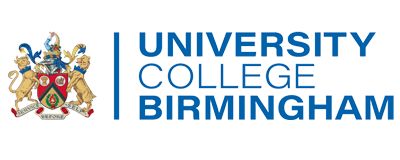Why Study in UK?

- Academic Excellence: UK universities are renowned globally for their high academic standards and quality of education. With a long history of excellence in teaching and research, UK institutions consistently rank among the top in the world.
- Wide Range of Courses: Nepalese students have access to a diverse range of courses and programs across various disciplines, including business, engineering, medicine, humanities, and more. Whether students are interested in traditional subjects or cutting-edge fields, the UK offers options to suit every interest and career goal.
- Cultural Diversity: Studying in the UK provides Nepalese students with a unique opportunity to immerse themselves in a rich and diverse cultural environment. They can interact with people from all over the world, broaden their perspectives, and develop valuable intercultural skills.
- Global Recognition: A degree from a UK university is highly respected and recognized worldwide. Employers around the globe value the skills, knowledge, and international experience that students gain from studying in the UK, enhancing their career prospects both in Nepal and internationally.
- Innovative Teaching Methods: UK universities employ innovative teaching methods that emphasize critical thinking, problem-solving, and practical application of knowledge. Students are encouraged to explore their interests, engage in hands-on learning experiences, and develop the skills needed to succeed in today’s rapidly changing world.
- Research Opportunities: The UK is a hub for groundbreaking research and innovation across various fields. Nepalese students have the opportunity to participate in cutting-edge research projects, work with renowned scholars and experts, and contribute to advancements in their chosen fields.
- Networking and Career Opportunities: Studying in the UK opens doors to a vast network of alumni, professionals, and industry connections. Nepalese students can build valuable networks, access internship and job opportunities, and lay the foundation for a successful career both in Nepal and abroad.
- Support for International Students: UK universities offer comprehensive support services for international students, including academic advising, career counseling, health and well-being resources, and assistance with visa and immigration matters. Nepalese students can feel confident knowing that they will receive the support they need to thrive in a new academic and cultural environment.
Best courses for Nepalese students in UK

Determining the “best” courses for Nepalese students in the UK depends on various factors including the student’s interests, career goals, academic background, and personal preferences. However, some popular and highly regarded courses for Nepalese students in the UK include:
1. Engineering: UK universities offer a wide range of engineering courses including mechanical, civil, electrical, and aerospace engineering, which are highly respected worldwide.
2. Medicine and Healthcare: Many Nepalese students pursue courses in medicine, nursing, pharmacy, and other healthcare-related fields in the UK due to the high quality of education and opportunities for practical experience.
3. Business and Management: Courses in business administration, finance, accounting, marketing, and management are popular among Nepalese students seeking to build careers in business and corporate sectors.
4. Computer Science and IT: With the growing demand for IT professionals globally, courses in computer science, information technology, and software engineering are attractive options for Nepalese students interested in technology and innovation.
5. Law: UK universities are renowned for their law programs, offering opportunities for Nepalese students to pursue careers in various legal fields including international law, corporate law, and human rights law.
6. Environmental Science and Sustainability: Given the increasing global focus on environmental issues, courses in environmental science, sustainability, and renewable energy are gaining popularity among Nepalese students passionate about environmental conservation.
7. Arts and Humanities: Courses in subjects such as literature, history, psychology, sociology, and philosophy offer diverse academic and career opportunities for Nepalese students interested in the liberal arts and social sciences.
8. Architecture and Design: UK universities are known for their excellence in architecture and design education, attracting Nepalese students aspiring to become architects, interior designers, and urban planners.
It’s essential for Nepalese students to research and consider factors such as university rankings, course content, faculty expertise, employment prospects, and potential for scholarships or financial aid when selecting the best courses in the UK. Additionally, consulting with academic advisors, alumni, and professionals in their desired field can provide valuable insights and guidance.
In which cities of the UK, most Nepalese students are found?

Nepalese students in the UK are found in various cities across the country, but there are some cities that tend to attract a larger number of Nepalese students due to factors such as the presence of renowned universities, vibrant Nepalese communities, employment opportunities, and cultural amenities. Some of the cities in the UK where Nepalese students often go include:
1. London: As the capital city of the UK, London is a major hub for education, culture, and employment, home to prestigious universities like Imperial College London and UCL, along with a sizable Nepalese community and diverse cultural experiences.
2. Manchester: Known for its top universities such as the University of Manchester, Manchester offers a vibrant student life, affordable living costs compared to London, and a growing Nepalese community.
3. Birmingham: With institutions like the University of Birmingham, Birmingham attracts Nepalese students with its cultural diversity, employment opportunities, and relatively lower living expenses compared to London.
4. Edinburgh: Renowned for its historic charm and universities like the University of Edinburgh, Edinburgh offers a high quality of life, outdoor activities, and a welcoming environment for international students, including those from Nepal.
5. Glasgow: Home to institutions like the University of Glasgow, Glasgow provides a rich cultural scene, affordable living costs, and a supportive international student community, making it an attractive destination for Nepalese students.
6. Leeds: Leeds, with the University of Leeds and a vibrant arts and music scene, offers diverse academic programs, job opportunities, and a friendly atmosphere conducive to student life, appealing to Nepalese students seeking higher education in the UK.
These cities, among others, provide Nepalese students with diverse academic opportunities, cultural experiences, and support networks, making them attractive destinations for pursuing higher education in the UK.
What are the eligibility criteria to apply for Nepalese students in the UK?

The eligibility criteria for Nepalese students to apply for studying in the UK can vary depending on the level of study (undergraduate, postgraduate, or Ph.D.), the specific university or course, and the visa requirements. However, here are some common eligibility criteria that Nepalese students typically need to fulfill:
1. Academic Qualifications: Nepalese students must meet the academic requirements set by UK universities, typically equivalent to qualifications like A-levels for undergraduates, a bachelor’s degree for postgraduates, and a master’s degree for Ph.D. study.
2. English Language Proficiency: Proficiency in English is essential, demonstrated through tests like IELTS or TOEFL, with minimum scores varying by university and course.
3. Financial Requirements: Students must prove they can cover tuition, living expenses, and other costs, usually through bank statements or sponsor letters.
4. Visa Requirements: Obtaining a student visa (Tier 4 for most) necessitates a Confirmation of Acceptance for Studies (CAS), proof of funds, language proficiency, and meeting UK Home Office immigration criteria.
5. Admission Requirements: Application processes include submitting transcripts, recommendations, personal statements, and other documents through the university’s system or UCAS for undergraduates.
6. Health and Medical Insurance: Adequate health insurance, either through the NHS or private providers, is necessary for the duration of their stay in the UK.
It’s important for Nepalese students to carefully review the specific eligibility criteria and application requirements of the universities and courses they are interested in, as they may vary from one institution to another. Additionally, seeking guidance from educational consultants, the British Council office in Nepal, or the respective university’s international admissions office can be helpful in understanding and meeting the eligibility criteria for studying in the UK.
What are the scholarship provisions for UK education for Nepalese students ?

Scholarship provisions for Nepalese students pursuing education in the UK can vary depending on the specific institution, course of study, and eligibility criteria. Here are some common scholarship options available to Nepalese students:
1. Chevening Scholarships: Prestigious awards funded by the UK government, offering outstanding students with leadership potential, including those from Nepal, the chance to pursue a one-year master’s degree program in any subject at any UK university, covering tuition fees, living expenses, and other costs.
2. Commonwealth Scholarships: Funded by the UK government through the Commonwealth Scholarship Commission, these scholarships provide opportunities for students from Commonwealth countries, including Nepal, to pursue master’s and Ph.D. studies in various disciplines in the UK.
3. British Council Scholarships: The British Council offers scholarships and funding opportunities for Nepalese students through various programs, partnerships, and initiatives, targeting specific fields of study, academic levels, or exchange programs.
4. University Scholarships: UK universities offer scholarships, bursaries, and financial aid programs for international students, including those from Nepal, based on academic merit, financial need, course-specific criteria, or other factors.
5. External Funding Bodies: Nepalese students can explore scholarship opportunities from external funding bodies, organizations, or government agencies in Nepal or internationally that support education abroad.
6. Research Council Funding: Available for students pursuing research degrees, such as Ph.D. or research-based master’s programs, particularly in science, engineering, and social sciences, offering financial support for their studies.
7. Private Scholarships and Sponsorships: Private companies, foundations, NGOs, and philanthropic organizations may provide scholarships, grants, or sponsorships to Nepalese students based on specific criteria or areas of interest, supporting their education in the UK.
Nepalese students interested in studying in the UK should thoroughly research scholarship opportunities, eligibility criteria, application procedures, and deadlines for each program. Starting the scholarship search and application process early is advisable to maximize funding opportunities. Additionally, seeking guidance from educational advisors, the British Council office in Nepal, or relevant institutions can provide valuable support and assistance.
What are the work opportunities for Nepalese students in the UK?

Nepalese students studying in the UK have various work opportunities available to them, which can help them gain valuable work experience, supplement their finances, and enhance their employability. Here are some of the key work opportunities for Nepalese students in the UK:
1. Part-time Jobs: Allowed under Tier 4 visas, students can work in retail, hospitality, tutoring, and more during term-time and full-time during vacations.
2. Internships and Work Placements: Offered by universities, these provide practical experience related to students’ fields of study, improving skills and career prospects.
3. Graduate Schemes: After studies, students can apply for structured training and entry-level positions with UK companies, fostering professional growth.
4. Post-Study Work Visa: The Graduate Route visa permits students to work in the UK for up to two years after graduation, facilitating work experience and career exploration.
5. Entrepreneurship: Ambitious students can explore starting businesses or freelancing, with ample support and resources available in the UK.
6. Work-Study Programs: Some universities offer on-campus work options, providing flexibility for students balancing work and studies.
7. Language Teaching: Proficient students can work as language tutors or teaching assistants, leveraging language skills in various settings.
Nepalese students should understand visa regulations and seek career guidance and support services from their university to maximize work opportunities and career prospects in the UK.
What is the best time to apply for Nepalese students in the UK?

For Nepalese students planning to study in the UK, the best time to apply varies depending on several factors, including the level of study (undergraduate, postgraduate, Ph.D.), the specific university and course, as well as visa processing times. However, here are some general guidelines on when to apply:
1. Undergraduate Studies: The main intake for undergraduate programs in the UK typically begins in September/October. Nepalese students interested in undergraduate study should start their application process at least a year in advance, ideally in the months of September to January of the year preceding the intended start date. Some universities may also have additional intakes in January/February or May/June, so it’s essential to check the specific application deadlines for each institution.
2. Postgraduate Studies: For postgraduate (master’s) programs, the application timeline can vary depending on the university and course. The main intake for postgraduate courses is usually in September/October, with application deadlines typically falling between December and March of the preceding year. However, some universities may also offer January/February or April/May intakes for certain programs. Nepalese students should research the application deadlines for their chosen courses and aim to submit their applications several months before the deadline to allow sufficient time for processing and obtaining a visa.
3. Ph.D. Studies: Ph.D. programs in the UK often have more flexible application deadlines, with some universities accepting applications throughout the year. However, it’s advisable for Nepalese students to start the application process well in advance, preferably six to twelve months before the intended start date, to allow time for identifying potential supervisors, preparing research proposals, and meeting any specific admission requirements.
4. Visa Processing Time: Nepalese students should also consider the time required for visa processing when planning their application timeline. The visa application process can take several weeks to months, depending on the country of application and other factors. It’s recommended to apply for a student visa as soon as possible after receiving an offer of admission from a UK university to avoid any delays.
In summary, Nepalese students should begin their application process for studying in the UK well in advance of their intended start date, considering the specific deadlines and requirements of their chosen universities and courses. Early preparation and careful planning can help ensure a smooth application process and increase the likelihood of securing admission to their desired program.










